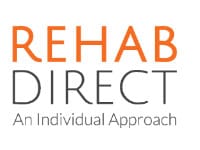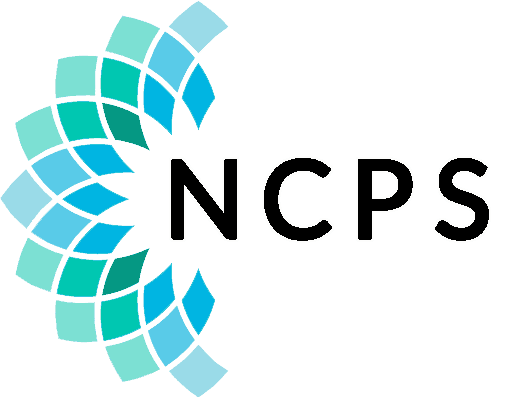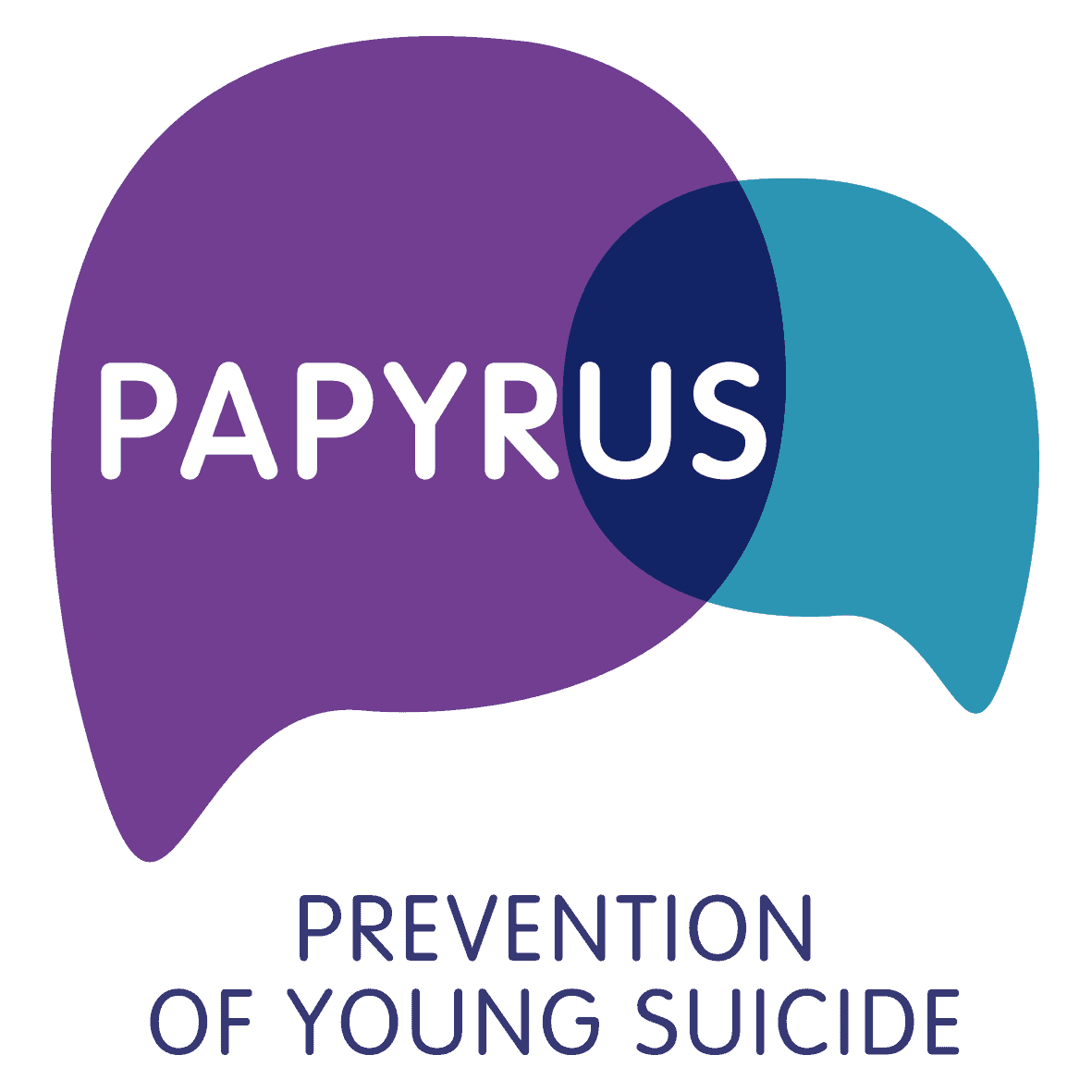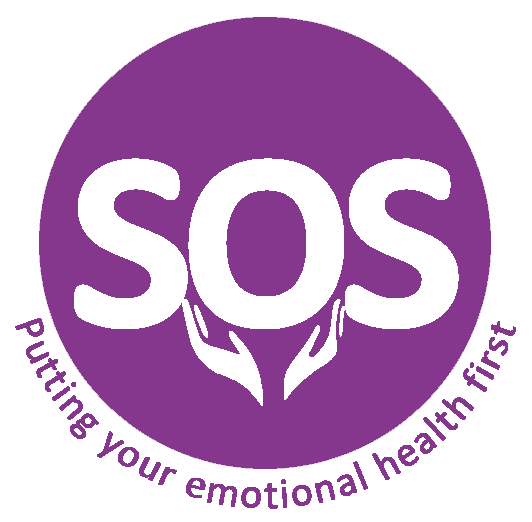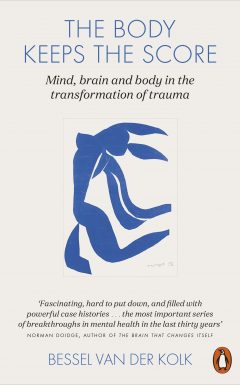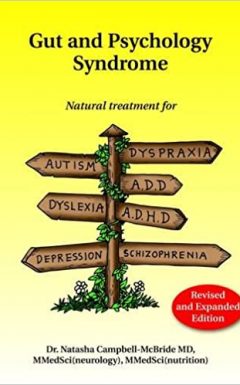
Empathy Rooms is a place where young people and adults can come and
seek help in an environment which is Genuine, Understanding, Empathic and Confidential.
Throughout life, everyone is open to experiencing difficulties which may result in
stress, anxiety, and depression. Poor mental health does not discriminate and is an
equal opportunist. Meaning that we’re all vulnerable to having a mental health
difficulty at some point in our lives.
At Empathy Rooms we pride ourselves on delivering a level of care which strives to
promote better mental health through the process of discovery and change, whilst using
evidence-based interventions and methods tailored individually to improve your quality of life.

Genuineness
We believe in the importance of therapeutic genuineness. Within the therapeutic relationship we will always be open, honest and sincere and will be true to ourselves without facades or merely role playing.

Acceptance
We understand that therapy can be difficult and the decision to enter a therapeutic relationship is not taken lightly. We will not judge you as a person and will set aside our own opinions and biases to provide a non-judgemental environment where freedom to be yourself is accepted.

Empathy
Empathy is at the heart of what we believe. We won’t walk in your shoes, but we’ll walk alongside you and help you make sense of the journey.

Trust
Therapy means nothing if it’s without trust. By agreeing confidentiality and by working collaboratively we will build trust together and create a relationship which will allow you to speak and be heard.

Commitment
We’re committed to the therapeutic journey and providing a level of service which is guided by our client’s individual needs and requirements. We will be reliable, affordable and consistent so you know what to expect without surprises.

Confidentialty
We hold to the highest level of confidentiality and would not engage in any therapy without explaining the specifics of confidentiality and obligations of both client and therapist. Out-with harm to self or others you can be assured that you confidentiality is of the utmost importance to us.

Understanding
We will always endeavour to understand our clients and their needs. We will not presume, but will listen and discover understanding at the client’s pace and with safety and compassion.

Hope
We believe that therapy rests on hope. With hope we can encounter change with our clients and forge a difference where difference is required. No one and no situation is without hope and we practice because we’re hopeful that you can find the change you require.

Our Mission:
Empathy Rooms seeks to improve the quality of our lives through improving the quality of our thoughts, feelings and behaviours.
Our Vision:
Is a world living with healthier, happier minds.
“Thinking about thoughts”
The Therapeutic Process

The Therapeutic Process
Therapy is a very individual process for every client and no two sessions are ever then same. The therapeutic process has no set agenda and flexes to the flow of the client and their reasons for entering therapy. As such therapy is tailored to each client in a specific way to ensure that the best possible outcome is achieved.
Although bespoke, the road map during therapy has some predefined stages which are integral to the process. Being familiar with these stages can help support clients and provide understanding about the structure of therapy
The Beginning

The Beginning
Therapy typically starts with an introduction session in which the Therapist and Client get a feel for each other and thereafter agree to enter a therapeutic relationship. At this point the Therapist will discuss confidentiality and a formal agreement will be signed to acknowledge the commencement of therapy. During the beginning phase, the Therapist will conduct an assessment, formulate a hypothesis about the Client’s issues and agree a treatment plan. During this stage the Therapist will be gathering information both past and present about the Client, their life and their perspective. This can be a difficult stage of the therapy where Client disclosures can be emotionally turbulent, but the support, empathy and compassion from the Therapist will ensure a sense of safety. The beginning phase can be viewed as the part of therapy which helps the Client to tell their story and provide context for their thoughts, feeling and behaviours. In the beginning phase, the Client will discuss their goals for therapy and these goals will be factored into the Therapist’s formulation and treatment plan to ensure that focus is maintained throughout the course of therapy.
Assessment

Assessment
In order to ensure that a Client is suitable for therapy, the Therapist must conduct an assessment. This usually takes a full session and covers several aspects of the Client’s life. At the assessment the Therapist will record personal details such as address, date of birth, next of kin, and will take a history of health-related problems, illness, accidents and addictions. The assessment will also consider criminal convictions, suicide, self-harm and general risk. This information is governed by GDPR laws and Clients can be assured that their confidentiality will be observed at all times. The assessment forms part of the beginning stage and will help the Therapist ensure that therapy is right for the Client, and that they can competently help the Client attain their goals. During the assessment, Clients will be required to complete some self-report measures by answering questions. A full explanation about the measures and their completion is provided and the Therapist will always assist where necessary.
Formulation

Formulation
Formulation is important for therapy. A clear and unabridged account of the Client’s problems and their maintaining factors will be explored to ensure that the agreed treatment will be relevant and beneficial. The process of formulation can be emotional and upsetting, but this can be cathartic and surprisingly useful in initiating change. More often than not, the Therapist will be the first person to ever hear the Client’s problems and the Client can be assured that the Therapist will be well trained in understanding the difficulties experienced during this phase. Throughout the formulation stage, Client’s will be offered the support and empathy needed to continue the therapeutic journey. Whilst formulation is heavily weighted towards the beginning stage of therapy, it is an ever evolving and adaptive process which caters to the needs and disclosures of the Client. Therefore, elements of formulation will appear consistently throughout therapy.
Treatment Plan

Treatment Plan
Throughout all of the stages so far, the Therapist will have been assessing and formulating in order to implement the best possible form of treatment plan for the Client. A treatment plan is specific to the Client’s presenting problem and is designed to help aid the Client in acknowledging, understanding and accepting their problems. Thereafter a process of change can happen and leads the Client towards achieving their specific goals. Although treatments plans are specific and structured, they are also adaptable and can be evolved depending on the goals and specifics of therapy. Any changes in treatment will be discussed with the Client and mutually agreed.
The Middle

The Middle
The middle phase of therapy is typically where the change occurs. It’s during this phase that the Client will be gaining enough understanding and direction to enable them to discover their own needs without feeling guilt, shame or embarrassment. Connections will take place, education will bring about new learning and the Client will be able to step back and view their problems from a different perspective. This stage often causes internal conflict between the old Client and the new improved version, but this is overcome through enhanced self-awareness. In the middle phase the Client and Therapist will hold a review to determine the movement towards goals. If the success is enough to enable and encourage the Client to become their own Therapist and continue their journey with their new sense of self, then the end phase will begin. If some more work is required, then the middle working phase will continue until an agreed review date.
The End

The End
The end phase of therapy is about consolidation and relapse prevention. After a desired level of change has been successful gained, the Therapist will prevent any new problems from entering therapy which cannot be addressed adequately without potentially leaving the Client exposed to a problem and not having the available sessions, time or finances to explore it. Exposing additional problems and not having time to address them is unethical. Once the agreed goals have been reached, the Client and Therapist will review the learning, establish the new ways of being, and will discuss and implement measures to prevent relapse. Final outcome measures and assessment will take place to accurately record the Client’s wellbeing, and the time will have come for the Therapist and Client to say goodbye. This can often be the hardest part of therapy for both parties, but a healthy exit from therapy setts out a healthy future for the Client.
What Can Therapy Help?


The shame attached to sex and porn addiction can create a vicious cycle of pain for the sufferer their partner and family members. If you're struggling with sex of porn addiction, Stephen Queen has been trained by the laurel Center by the world-renowed Paula Hall and would be happy to have a confidential discussion about how therapy can help to overcome your addiction. The above video by Eli Nash talks about addiction, shame, and the importance of seeking help.
Our Philosophy
We’re passionate about improving the mental health of us all. Regardless of Age, Race, Sexuality, Gender, Religion or Disability. We all deserve to live with a healthier, happier mind and we strive to be the best therapists we can. We engage with the latest treatments to provide the best quality services for our clients, and we’re proud to be talking about mental health.
Organisations we work with
We're proud to be working with and supporting the great work of many organization which promote the mental health and welling being of their employees, clients and patients.

For all video call sessions we use doxy.me PRO. The system is simple and convenient to use with no downloading or installation required. Just use a browser on a computer or device with a camera and microphone. All data is encrypted, secure and meets the GDPR data privacy requirements. Plus, your therapist has conducted the additional training required to conduct sessions online and is fully certified to provide the best online session experience.







All data is encrypted, your sessions are anonymous, and none of your information is stored. We adhere to HIPAA, PIPEDA, and GDPR data privacy requirements.

Psychotherapy covers many different aspects of psychology and mental health. Membership of the following organisations demonstrates our commitment to continued professional developments and ongoing learning to ensure that we always promote the best levels of care within the profession.
Check out these Videos



Being accredited means that the therapist has both core professional mental health training or recognised equivalent; as well as specific CBT training. In order to be accredited, with the BABCP and BACP members must have applied and demonstrated that they meet high standards of training and experience in CBT. They also commit to maintaining the standards of clinical practice, clinical supervision and continuing professional development activities. Accredited members are audited to ensure that they continue to meet these expectations.
Accreditation with the BABCP and BACP provides a high level of protection to the public, employers, and other agencies by ensuring that their therapist meets the required standards and that they adhere to the standards of conduct, performance and ethics required of the profession.
Empathy Rooms values accreditation and strives to exceed the professional standards every step of the way.
Therapists

Stephen Queen - Accredited CBT Psychotherapist and Counsellor
I am a Snr accredited Psychotherapist and hold accreditation with BABCP, BACP and the NCPS (SCoPEd Level C). I currently work with Adults, Couples and Children on a range of mild to moderate mental health problems. I have many years of experience working with addiction, depression, anxiety, OCD, POCD, stress, self-esteem, psychosexual disorders, ASD, ADHD, and have done considerable work within the LGBT community. I am particular interest in working with trauma and specialise in working with:
- Children and Adolescents.
- Sex and Porn Addiction
- POCD and OCD
I am a qualified clinical supervisor, so help to promote high professional standards whilst supervising other therapists, and I also practice hypnotherapy, EMDR and Neurofeedback.
You can expect a non-judgemental attitude, compassion and understanding with a level of challenge coordinated to help bring about meaningful change.
Qualifications:
- Msc in CBT
- COSCA Certificate in Counselling
- SCOTACS Diploma in Counselling and Groupwork (CBT) (Hons)
- SCOTACS Advanced Clinical Skills
- EMDR Stages 1-3
- Certificate in Counselling Children and Young Peoples
- Diploma in Child Psychology
- Diploma in Sex Addiction Counselling
- Diploma in Clinical and Advanced Hypnosis
- Hypnotherapy Practitioner Diploma
- Certificate in Neuro Linguistic Programming
- SCOTACS Supervision in Practice
- Professional Development Award in Training
- Scotland’s Mental Health First Aid Certificate
- Certificate in Infant Loss
- Certificate in Boardroom Leadership and Governance
- Online & Telephone Counselling 2.0
Boards:
- Lifelink Glasgow Board Member
- BABCP NFC Representative
- BABCP Scottish Branch – Chair and NCF Representative
- NBG Regional Board Member
Member of:

If you have health insurance, we accept clients covered by any of the above. If you’d like to know more, please get in CONTACT and we’ll arrange a brief consultation to discuss the referral process.
Recomended Books
The Blog About Therapy
Unlocking the Secrets of the Gut-Brain Connection: How Your Belly Influences Your Brain
Welcome to a journey inside one of the most fascinating areas of modern health science: the gut-brain connection. This complex…

Understanding Autism: An Overview
Autism, often referred to as Autism Spectrum Disorder (ASD), is a complex and multifaceted condition that affects individuals in various…

Understanding and Treating Pure O OCD: A Comprehensive Guide
Understanding and Treating Pure-O OCD: A Comprehensive Guide Pure-Obsessive-Compulsive Disorder (Pure-O) is a term often used to describe a subtype…

faq
- What is CBT?
What is CBT?
Cognitive behavioural therapy (CBT) is a talking therapy that can help you manage your problems by changing the way you think, feel or behave. It has been proved to help treat a wide range of emotional and physical health conditions in adults, young people and children, and is commonly used to treat anxiety and depression.
- How effective is CBT?
How effective is CBT?
CBT has a wealth of research about its effectiveness as a psychological treatment and has numerous case studies which show it to be as effective as antidepressants for many types of depression and anxiety. For further information it’s useful to consult the National Institute for Health and Clinical Excellence (NICE) guidelines which provide the latest information on mental health problems and the current psychological treatments.
- What happens in a therapy session?
What happens in a therapy session?
Cognitive behavioral therapy is a collaborative therapy founded on goal setting and treatment planning. Together we will work out what therapy needs to concentrate on and will build an individual treatment plan based on the therapeutic goals. As therapy is individualized, no client is exactly the same and differences in the therapeutic approach and style will be required. You can expect to discuss your past, key relationships from childhood to present, your belief system and the rules from which you operate. All of these items will be explained, and although challenging, the pace of therapy will be guided by you. We will not go where you don’t want to travel, but when you do we can travel there together.
- Will my therapist be qualified?
Will my therapist be qualified?
Yes, you therapist will be qualified and will have attained a Diploma in Cognitive Behavioural Therapy. Your therapist may also hold additional qualifications and will more often than not practice from an integrative approach. Which means the therapist is not ridged in using only CBT, but will draw from their training in different types of therapy to help provide the best possible individual treatment plan. Your therapist will happily share their qualifications with you and you can be assured that your therapist will be a member of the British Association of Behavioural & Cognitive Psychotherapies (BABCP) and may also be a member of Counselling and Psychotherapy in Scotland (COSCA).
- Who is the right therapist for me?
Who is the right therapist for me?
All of our therapists are highly trained and professional people, but individual relationships are not necessarily based on skills and qualifications. As a therapy designed to challenge, CBT takes therapist selection seriously and asks clients to consider the meaning behind their preferences. Indeed, if you ask for a female therapist, it’s worthwhile considering what challenges would be presented if you worked with a male therapist and vice versa. Your autonomy in selecting a therapist will never be taken away and we will always provide the sex of therapist you wish to work with. However sometimes it helps for us to challenge what makes us feel uncomfortable. Your initial session is a great opportunity to explore and ask your therapist questions. We’re hopeful that you’ll find the experience valuable and will be able to form a relationship, but we encourage you to discuss any potential barriers with your therapist who will discuss your concerns in a professional and understanding manner.
- How long does each session last?
How long does each session last?
Time boundaries will always be agreed between the client and therapist, but a typical session will last between 50-60 minutes. Longer session may be available and are charged at a pro rata rate.
- How many session will I need?
How many session will I need?
Time boundaries will always be agreed between the client and therapist, but a typical session will last between 50-60 minutes. Longer session may be available and are charged at a pro rata rate.
- How much does therapy cost?
How much does therapy cost?
Single Individual Session 50 Minutes: £60.00
Single Individual Session 90 Minutes: £85.00Single Couples Sessions 50 Minutes: £65.00
Single Couples Session 90 Minutes: £95.00Single Family Session (5 people max) 50 minutes: £65.00
Single Family Session (5 people max) 90 minutes: £95.00Home visit fees are as per above, but a travel fee would be applicable and can be discussed by contacting us.
- Can I get therapy for free?
Can I get therapy for free?
As a professional service provider Empathy Rooms do not provide therapy for free as we do not currently receive external funding which would allow us to provide a free service. We would love to provide a free service to everyone as we passionately believe that mental health services should be open to everyone needing help, but our overheads and insurances don’t allow this to happen. Depending on your level of income, we will always consider a reduced fee for our service and encourage you to contact us if you would like to discuss a reduction. You will never be judged by us for asking and we understand that everyone’s circumstances our different.
- Why do I need to pay if I miss a session?
Why do I need to pay if I miss a session?
If you miss an appointment with your therapist without giving 48 hours’ notice, the fee for the appointment is charged in full. This is because a cancelled appointment without notice is not easily filled and results in a financial loss for your therapist. All fees, cancellation policies and procedures will always be explained by your therapist and will form part of the contract you jointly enter and agree upon. It is at the discretion of your therapist to waive their fee for non-attendance and special consideration will always be given for mitigating circumstances.
- Will my problems come back?
Will my problems come back?
CBT is a therapy which works to position the client to become their own therapist by equipping them with specific methods which they can continually use to help prevent a problem from returning. Depending on life circumstances, future therapeutic sessions may be required, and indeed some clients choose to have the occasional future session to help maintain their progress. We believe that therapy is the starting point towards resolving problems, but recognise that therapy may not be involved 100% of the journey. Therapy will be the basis to guide you on your journey and can be used at any time in the future to help keep the journey on track.
- Why do I need to sign a contract?
Why do I need to sign a contract?
A therapeutic relationship is a serious relationship where the most intimate, embarrassing and secret parts of a person’s life can be shared and explored. This is a relationship which needs to be founded on trust, confidentiality and mutual agreement. When you enter into a therapeutic relationship, your therapist will fully explain the therapeutic contract which states what you can expect from your therapist and what is expected in return. The contract forms the basis of trust and understanding and is designed to offer you a clear vision.
- Why do I need to do homework?
Why do I need to do homework?
As part of therapy clients will be asked to engage in homework. This is an important part of therapy as it enables the client to apply the skills learned during each session into their daily life and encourages positive self-practice. Homework is a good way of getting the best value from therapy and extends the duration of each session from one hour to the full period between sessions. Homework will always be collaborative, explained and realistic. The therapist will always take into account the practicality or homework and the necessary support required to make it successful.
- Do you have to tell my Doctor if I attend?
Do you have to tell my Doctor if I attend?
In most cases it is not necessary to discuss therapy with your doctor, but if you’re currently involved in therapy or psychiatric care then addition therapy should always be discussed with your current care provider before engagement. Likewise, if you’re on medication we recommend that you discuss therapy with your doctor before you commence. It is mandatory for you to provide your Doctors details during you assessment, but we would only contact your doctor if you were at risk of harming yourself or others, or if you specifically asked us in order to provide assistance.
- Do you have to tell my family or employer if I attend?
Do you have to tell my family or employer if I attend?
Your confidentiality is of the utmost importance and we will never divulge you therapy records to anyone unless specifically required by law or if you posed a risk to yourself or someone else. In such cases we would always seek to discuss a required breach of confidentiality with you personally prior to action. Likewise, we will never disclose information to an insurance company, workplace or third party unless specifically requested by you personally.
- Is my information kept confidential?
Is my information kept confidential?
Confidentiality is essential in therapy and is considered a cornerstone of our profession which we take extremely seriously and is essential for building trust. However, confidentiality is not absolute, and there are exceptions which would require confidentiality to be broken. In the interests of public safety it is sometimes necessary for therapists to make referrals to agencies or organisations such as GP’s, police or social services when there is a serious risk of imminent harm to a client or to others. Where possible we would always aim to make such referrals with the client’s knowledge and consent, but this is not always possible and is determined by the type and level of risk.
Under certain circumstances, confidentiality may also be broken as a requirement of law due to client disclosures, for example, about terrorist activities. In such cases it can be a criminal offence for a therapist to “tip off” their client when such disclosures are required and may be referred without consent.
Where confidentiality is to be broken at the client’s request, for example, where a client asks for help concerning abuse or for court cases involving a claim for damages by the client, this should be discussed with your therapist in the first session and agreement should be reached about the limits of confidentiality and its handling.
At no point will your therapist engage in external communications with your GP, employer, partner, family, and friends or to any other agencies without your knowledge. Such communications would be considered an absolute breach of confidentiality and trust.
Your therapist is duty bound to keep your client records for a period of six years following the end of your therapy. Such records will be held in accordance with the data protection act 1998 and will be destroyed thereafter in accordance with current best practice.
Your therapist, and indeed all practising therapist will have a supervisor who they meet on a regularly basis to maintain a good ethical framework for healthy practice. During supervision your therapist is encouraged to discuss issues and problems which they may be experiencing in the course of their treatment with clients. At all times confidentiality is observed in supervision and your therapist will not discuss your personal details with their supervisor. All supervisors are equally held to the ethical principles of confidentiality and you can be assured that your confidentiality will be preserved at all times. Supervision is a necessary element of the therapeutic process for your therapist and helps ensure that the best level of care is being provided by your therapist.
- Why does my therapist have a supervisor?
Why does my therapist have a supervisor?
Your therapist, and indeed all practicing therapist will have a supervisor who they meet on a regularly basis to maintain a good ethical framework for healthy practice. During supervision your therapist is encouraged to discuss issues and problems which they may be experiencing in the course of their treatment with clients. At all times confidentiality is observed in supervision and your therapist will not discuss your personal details with their supervisor. All supervisors are equally held to the ethical principles of confidentiality and you can be assured that your confidentiality will be maintained at all times. Supervision is a necessary element of the therapeutic process for your therapist and helps ensure that the best level of care is being provided by your therapist.
- how do I get to the Glasgow office?
how do I get to the Glasgow office?
[accordion clicktoclose=true]
[accordion-item title=”How to get here by Car”]Directions if Traveling West Bound on the M8
- From the M8 West bound take junction 18 and exit on the right for Charing Cross
- Continue to the traffic lights and keep in the right hand lane.
- Merge onto St Georges Road/ A804 and continue to the next traffic lights
- Go straight through the traffic lights until the next set of traffic lights and turn right onto Bath Street.
- Go straight through the next set of traffic lights onto Berkeley Street
- Continue along Berkeley Street until it bends right onto Claremont Street.
- At the traffic lights turn right onto Sauchiehall Street
- Continue along Sauchiehall street and veer into the left lane before the traffic lights (but after the bus lane)
- Just through the traffic lights turn first left onto Newton Place
- The Centre of Therapy is the 7th building on the row
Directions if Traveling East Bound on the M8
- From the M8 East bound take junction 18 for Glasgow City Centre
- Follow the sweeping bend right and veer into the left lane as you approach the traffic lights
- Turn left at the traffic lights onto Pitt Street
- Turn left at the next traffic lights onto St Vincent Street
- You will approach two sets on traffic lights.
- Go straight through the first set and then turn right at the second set onto North Street A804
- Continue to the next set of lights and turn left onto Berkeley Street
- Continue along Berkeley Street until it bends right onto Claremont Street.
- At the traffic lights turn right onto Sauchiehall Street
- Continue along Sauchiehall street and veer into the left lane before the traffic lights (but after the bus lane)
- Just through the traffic lights turn first left onto Newton Place
- The Centre of Therapy is the 7th building on the row
Directions if Traveling North on the M74
- From the M74 North bound take junction 1 for Kinning Park/Tradeston
- Veer left and turn left at the traffic lights onto Carnoustie Street.
- Veer left again and turn left at the next Traffic Lights onto Scotland Street
- Follow the road where it will bend left unto West Street
- Veer left as you approach the traffic lights and turn left onto the M8 East
- Follow the M8 over the Kingston Bridge and keep in the right lane sign posted Anderston/Charing Cross
- Veer left at Junction 18 onto North Street A804
- Go straight through the first set of traffic lights
- Continue to the next set of lights and turn left onto Berkeley Street
- Continue along Berkeley Street until it bends right onto Claremont Street.
- At the traffic lights turn right onto Sauchiehall Street
- Continue along Sauchiehall street and veer into the left lane before the traffic lights (but after the bus lane)
- Just through the traffic lights turn first left onto Newton Place
- The Centre of Therapy is the 7th building on the row
[/accordion-item]
[accordion-item title=”How to get here by Train”]The nearest train Station is Charing Cross which is a 6 minute walk away.
[/accordion-item]
[accordion-item title=”How to get here by Bus”]The closest bus stop is “Before Woodside Crescent” on Sauchiehall Street and is facilitated by First Group, McGills Buses and Stagecoach. The Stop ID is 45232752
[/accordion-item]
[/accordion]Office 6, 48 Berkeley Street, Glasgow, G3 7DS
- how do I get to the Stonehouse office?
how do I get to the Stonehouse office?
[accordion clicktoclose=true]
[accordion-item title=”How to get here by Car”]Directions if traveling east bound on the A71 from Strathaven Direction:
- Drive to the roundabout at the Esso petrol station. At the round about turn left, and then turn next left into Toftcombs Avenue. Drive straight forward past the play park on the left and number 22 is the house on the left. Pull into the drive and the office is directly in front of you. Please just walk in and take a seat in the reception area.
Directions if traveling west bound on the A71 – from Larkhall Direction:
- Drive along the Stonehouse bypass. Just before roundabout at the Esso petrol station turn right in Toftcombs Avenue. Drive straight forward past the play park on the left and number 22 is the house on the left. Pull into the drive and the office is directly in front of you. Please just walk in and take a seat in the reception area.
[/accordion-item]
[accordion-item title=”How to get here by Train”]The nearest Train Station is situated in Larkhall. A bus from Larkhall to Stonehouse would be required.
[/accordion-item]
[accordion-item title=”How to get here by Bus”]Traveling from both the east or west directions the closest bus stops are located on Newfield Road and Strathaven Road. From there, the office is a short 5 minute walk
[/accordion-item]
[/accordion]
22 Toftcombs Avenue, Stonehouse ML9 3QY

Testimonials
Appointments & Fees
We aim to provide appointments within 7 days from referral and will always try to prioritise emergencies. Appointments are available Monday to Friday between 9am and 8pm.
Weekend appointments are also available but are subject to availability.
If you require a weekend appointment please contact us and we will check current availability..
Each session lasts 50 minutes, and begins at the arranged time..
We understand that life can be hectic, but we ask that you try to arrive a few minutes before
your arranged time so that you can maximize the 50 minute session and get the most
benefit from it..
As your therapist will have a client arranged following your session we are unable to
make up time if you are late.
Fees
CBT Single Individual Session: Starting from £70.00
Child Therapy Session: Starting from £70.00
Couples Sessions: Starting from £85.00
Family Session (5 People Max): Starting from £85.00
Sex and Porn Addiction Sessions: Starting from £75.00
Supervision Sessions £65.00 per Hour
If you have health insurance, we accept clients covered by any of the following with a valid authorisation number for treatment. If you’d like to know more, please get in CONTACT and we’ll arrange a brief consultation to discuss the referral process.
BUPA – AXA – AVIVA – WPA
Home visits fees are as above, but a travel fee would be applicable and can be discussed by contacting us.
For EAP, Insurance Companies and Medical Legal firms, please enquire about fees and payment terms.
Fees are paid by bank payment to the following:
BANK DETAILS:
Bank: Bank of Scotland
Account name: Empathy Rooms
Sort Code: 80-22-60
account No: 13823961
Cancellation Policy
If you miss an appointment with your therapist without giving 48 hours’ notice, the fee for the appointment is charged in full.
This is because a cancelled appointment without notice isn’t easily filled and results in a financial loss for your therapist. All fees, cancellation policies and procedures will always be explained by your therapist and will form part of the contract you jointly enter and agree upon.
It is at the discretion of your therapist to waive their fee for non-attendance and special consideration will always be given for mitigating circumstances.































